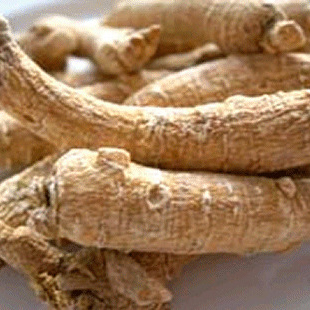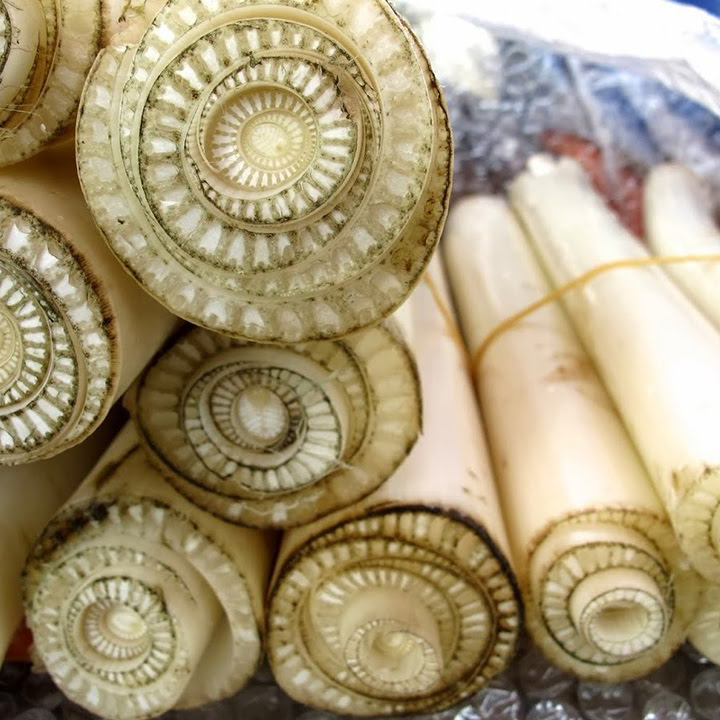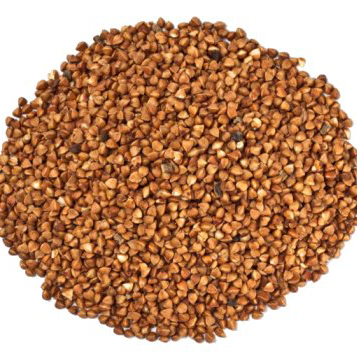
Ginseng is a deciduous perennial plant that belongs to the Araliaceae family. Currently, twelve species have been identified in the genus Panax. Among them, Panax ginseng C. A. Meyer (Araliaceae), cultivated in China, Korea, Japan, Russia, and the US, P. quinquefolium L (American ginseng), grown in southern Canada and the US and P. notoginseng, cultivated in Yunnan and Guangxi provinces in China, represent the three most extensively investigated species.
According to the studies in China (Department of Biochemistry, Faculty of Medicine, Chinese University of Hong Kong), the anti-tumour effects of ginsenosides include its ability to induce Cancer cell death (such as apoptosis and necrosis), and having effects of anti-proliferation, anti-invasion and metastasis, and anti-angiogenesis.
Inducing Cancer cell death: Several compounds found in ginsenosides have been shown to induce apoptosis in prostate cancer cells, ovarian cancer cells, neuroblastoma cells and lung adenocarcinoma cells. The induction of tumour cell death by ginsenosides may be one of the mechanisms in the elimination of tumour cells, the writers say.
Anti-proliferation: Ginsenosides also have preventative effects by inhibiting the cell cycle progression. They have been shown to arrest the growth of human tumour cell lines in lung tumour cells, prostate carcinoma cells, leukuemia cells, and hepatoma (liver cancer) cells.
Angiogenesis-Suppressing Proteoglycan Molecules
Anti-invasion and anti-metastasis: Cancer metastasis is a complex process involving angiogenesis and cell-cell interactions. What is cancer metastasis? Metastasis is the spread of cancer from its primary site to other places in the body. Cancer cells can break away from a primary tumour, penetrate into lymphatic and blood vessels, circulate through the bloodstream, and grow in a distant focus (metastasize) in normal tissues elsewhere in the body.
Tumours are classified as either benign or malignant. Malignant tumours can spread by invasion and metastasis whilst benign tumours cannot (and only grow locally). Metastatic tumours are very common in the late stages of cancer. The spread of metastases may occur via the blood or the lymphatics or through both routes. The most common places for the metastases to occur are the adrenals, liver, brain and the bones. There is also a propensity for certain tumours to seed in particular organs.
Scientists recently demonstrated that the invasiveness of some endometrial cancer cells (including those of the uterus) was inhibited by treating them with a certain types of ginsenosides. The inhibitory effect is due to suppression of MMP-2 expression.
What are matrix metalloproteinases (MMPs)? MMPs are capable of degrading all kinds of extracellular matrix proteins. MMPs are also thought to play a major role on cell behaviours such as cell proliferation, migration (adhesion/dispersion), differentiation, angiogenesis, apoptosis and host defense.
The anti-invasive effects of several ginsenosides include the abilities to significantly inhibit in vitro invasion of hepatoma cells, melanoma cells, human lung carcinoma and pancreatic cancer cells. Ginsensodies have also been shown to inhibit lung metastasis, reduce the weight of tumours in lung, breast, gastric and melanoma cancers.
Anti-angiogenesis effects: Angiogenesis is a physiological process involving the growth of new blood vessels from pre-existing vessels. Excessive angiogenesis has been defined as a prominent pathological feature of many diseases such as tumour, rheumatoid arthritis, atherosclerosis, psoriasis and diabetic retinopathy (”diabetic eyes”).
According to the present report, numerous recent studies have demonstrated several ginsenosides exert an anti-angiogenic action in different animal models when administered alone or in combination with other conventional chemicals, such as human breast infiltrating duct carcinoma, ovarian carcinoma cells, melanoma cells and colon carcinoma. These data indicate that one of the mechanisms of anti-metastatic effect of ginsenosides is probably related to suppression of tumour-induced angiogenesis.
The researchers say that both gensensides Rg3 and its metabolite form Rh2 have emerged in Mainland China and Taiwan as anti-cancer drugs in the form of capsules (e.g. ‘Rg3 Shenyi Jiaonang’ and ‘GOOD LIFE ginsenoside Rh2 capsule’). Rg3 Shenyi Jiaonang suppresses tumour angiogenesis and prevents adhesion, invasion and metastasis of tumour cells. Rh2 as an adjuvant agent was also tested in the nude mouse model with human ovarian cancer cells transplanted. In the presence of Rh2, cisplatin could significantly inhibit tumour growth in vivo and prolong survival time. Neither Rh2 nor cisplatin alone could inhibit tumour growth. It was shown that chemotherapy supplemented with Rh2 is 60% more effective than chemotherapy alone. It could also mitigate the adverse effects of hair loss, anemia, nausea, vomit and poor appetite following chemotherapy or radiotherapy.
Both Rg3 and Rh2 are extracted from red ginseng which is processed by steaming and drying. During the process, the malonyl group at the C-6 is released and the glycosyl moiety at C-20 is partially detached to generate Rh1, Rh2 and Rg3 through deglycosylation similar to the deglycosylated product, compound K generated from the metabolic transformation of ginsenoside Rb1 by intestinal bacteria. However, whether all of the ginsenosides generated by such post-treatment of white ginseng have similar anti-tumour effects are still not known.
Complement all herbal cancer treatments with a The Professional Rife Machine, Version 3 Machine.




